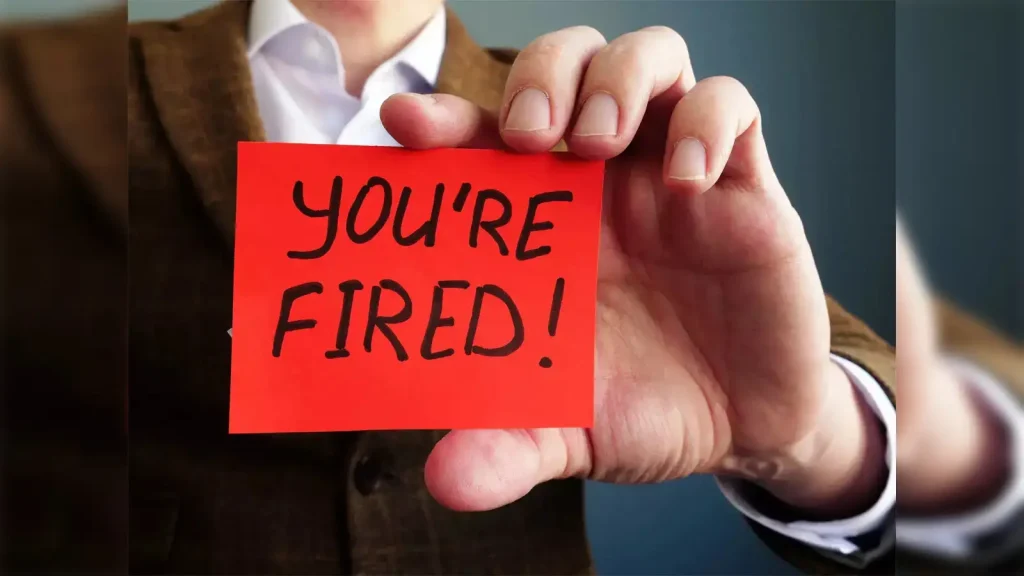In Maryland, most jobs fall under what’s known as “at-will employment” — meaning employers can fire employees at any time and for almost any reason. However, “almost” is the key word. While employers have broad discretion, there are clear legal limits to when and how someone can be terminated. If you were fired for an illegal reason, you may have a valid wrongful termination claim.
Understanding what employers can’t do is just as important as knowing your own rights. In this post, we’ll explore the most common illegal reasons for firing employees in Maryland, and what you can do if you believe you were wrongfully terminated.
At-Will Employment: The Starting Point
Under at-will employment, which is the default in Maryland, an employer does not have to provide a reason to terminate an employee. Likewise, employees are free to quit at any time. However, this general rule has significant exceptions—and those exceptions are where wrongful termination comes into play.
Illegal Reasons for Termination
Below are some of the most common—and clearly unlawful—reasons an employer cannot use to fire an employee in Maryland:
1. Discrimination Based on Protected Characteristics
It is illegal for an employer to fire someone because of who they are. Federal and Maryland state laws prohibit discrimination based on the following protected characteristics:
- Race or color
- Religion
- National origin
- Sex (including pregnancy, sexual orientation, and gender identity)
- Age (if you are 40 or older)
- Disability
- Genetic information
- Marital status (under Maryland law)
If you were fired because of one of these traits, your employer may have violated the Civil Rights Act, the Americans with Disabilities Act (ADA), the Age Discrimination in Employment Act (ADEA), or Maryland’s Fair Employment Practices Act.
Example: If your employer found out you are pregnant and then fired you a week later, without any change in performance or policy violations, that could be unlawful pregnancy discrimination.
2. Retaliation for Reporting Wrongdoing
Employers cannot fire you for standing up for your legal rights or reporting unlawful conduct. This includes:
- Filing or supporting a complaint of discrimination or harassment
- Reporting unsafe working conditions
- Complaining about wage theft or unpaid overtime
- Participating in a government investigation
- Refusing to engage in illegal acts
- Taking FMLA leave or requesting disability accommodations
This type of firing is called retaliation, and it’s one of the most common forms of wrongful termination. Retaliation is prohibited under both state and federal laws, including Title VII of the Civil Rights Act and the Maryland Fair Employment Practices Act.
3. Whistleblower Termination
Maryland law protects employees—especially those in public-sector or healthcare roles—who report illegal or unethical activity within their organization.
If you were fired for alerting authorities, your supervisor, or even the media about:
- Fraud
- Environmental violations
- Patient safety issues
- Illegal business practices
…you may be protected by Maryland’s Whistleblower Protection Act or similar laws. Firing a whistleblower is not just unethical—it may be unlawful.
4. Firing in Violation of an Employment Contract
If you have a written, verbal, or implied contract that limits how or why you can be terminated, your employer must honor that agreement. This includes:
- Contracts stating you can only be fired “for cause”
- Agreements requiring progressive discipline
- Implied promises made in employee handbooks or offer letters
If your employer violated those terms, it may amount to a breach of contract—even in an at-will state.
5. Firing That Violates Public Policy
Maryland courts recognize a legal claim for wrongful termination when a firing violates clear public policy. This includes:
- Refusing to break the law
- Reporting illegal conduct (even if not covered by specific whistleblower statutes)
- Filing a workers’ compensation claim
- Taking jury duty or military leave
If you were terminated for doing something the law encourages—or for refusing to do something the law forbids—you may have a public policy claim.
What Employers Can Do (Even If It Feels Unfair)
Not every unfair or harsh firing is illegal. For example, it is not unlawful to be fired because:
- Your manager didn’t like you (as long as it’s not based on a protected trait)
- The company was downsizing
- You made a mistake on the job
- You didn’t “fit” with company culture (again, assuming no illegal bias)
Unfair is not always illegal—but if something about your termination feels discriminatory or retaliatory, it’s worth a closer look.
What to Do If You Believe You Were Fired Illegally
If you suspect your employer broke the law in firing you, take these steps:
- Document everything – Keep emails, notes, and write down what happened before and after your termination.
- File a complaint – You may need to contact:
- The EEOC
- The Maryland Commission on Civil Rights
- OSHA or the Department of Labor, depending on the issue
- Talk to a wrongful termination attorney – Employment law is complex, and having professional guidance can make all the difference.
- Act quickly – Many claims have filing deadlines as short as 180–300 days from the date of termination.
Final Thoughts
Maryland employers have wide latitude to make staffing decisions—but they cannot fire someone for an illegal reason. Whether it’s discrimination, retaliation, breach of contract, or whistleblower punishment, these are serious violations of employee rights.
If you suspect your employer crossed a legal line, don’t assume you’re powerless. There are state and federal laws that protect you—and there are legal options to hold employers accountable.
Taking action starts with understanding what your employer can’t do—and standing up for what they did wrong. We recommend wrongful termination lawyers maryland.

